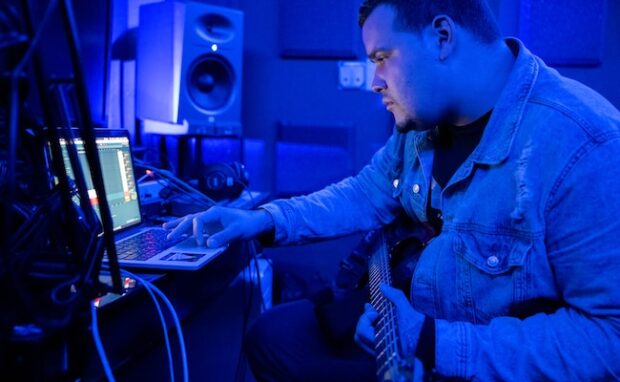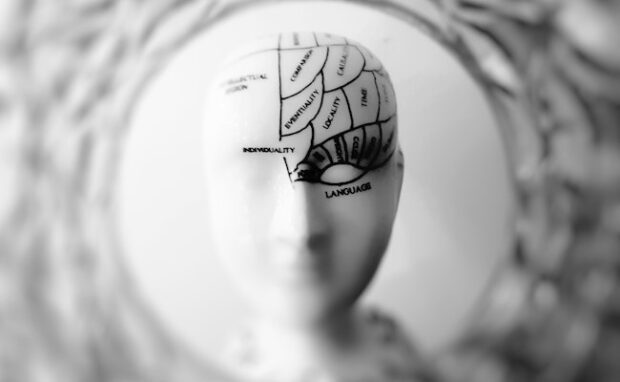AI music study predicts hit songs with impressive accuracy
A team of scientists discovered a way to predict which songs would become popular by analyzing brain activity with AI. Their method could be more accurate than well-known streaming services like Spotify, which invest heavily in recommending the right songs to users. Soon, the AI model may improve our favorite music apps.
The most interesting aspect of artificial intelligence development is its versatility. It is astounding how we can apply AI to fields that seemingly have little connection to technology. Yet, experts have created a way to find new songs online. That is great news if you’ve been itching to find new songs on your playlist.
This article will discuss the latest AI music study using artificial intelligence to identify which songs will likely become popular. Later, I will cover other research using artificial intelligence to understand the human mind further.
How did the AI music study work?

Psychological research news outlet PsyPost discussed why Paul J. Zak and his team tried to predict popular hits with artificial intelligence. The website cited the low accuracy of methods used by popular streaming services like Pandora and Spotify.
These platforms recommend songs using their proprietary digital systems. Unfortunately, PsyPost says only less than 4% of new songs become hits.
Analyzing lyrics, social media mentions, and other methods are also unreliable. Thus, the researchers explored whether measuring neurophysiologic responses to music could help predict hit songs.
Neurophysiologic responses include heart signals associated with emotional resonance and attention. In other words, your brain affects your heart whenever you hear specific lyrics and melodies.
Claremont Graduate University Professor Zak chose a few and classified them as “Immersion.” The study involved 33 participants who listened to 24 songs from a streaming service. Then, the researchers measured their responses and derived three variables from their data:
- Average immersion
- Peak immersion (the highest immersion moments during a song)
- Retreat (the lowest 20% of immersion moments)
The researchers asked the participants whether they liked each song and whether they would replay and recommend it to others. Also, they discovered analyzing this data enables them to predict market outcomes.
For example, they can predict the number of song streams based on a small amount of data. The Zak team called this method “neuroforecasting.”
It involves analyzing the peak Immersion and Retreat because hit songs often have high Immersion and low Retreat. However, statistical approaches were only 69% accurate.
Conversely, machine learning, a type of artificial intelligence, heightens accuracy to 97%. The researchers admit their study has limitations, such as the small sample size.
They must conduct further research to verify their findings. Yet, their study can help us learn more about the unconscious mind with artificial intelligence.
Are there other AI mind studies?

The AI music study isn’t the only artificial intelligence research conducted on the human brain. For example, Elon Musk’s Neuralink has been developing brain implants for surfing social media.
Co-founder DJ Seo demonstrated how it works by showing a monkey with the device. The primate could type on a computer using its thoughts. Soon, it may enable you to check your newsfeed and post updates without touching gadgets.
You may also like: Connect with your troubled kid with Amazon Music
On the other side of the globe, Osaka University researchers created an artificial intelligence that can read minds. Researcher Yu Takagi requested brain scans from four subjects who viewed 10,000 photos.
Then, his AI team trained DALL-E and Stable Diffusion to link images to specific brain activity. Past approaches had blurry results, so they added captions to the images. For example, a picture of a clock tower has the words “clock tower.”
The labels accelerated the training of their AI model to match images and brain waves. As a result, their model could recreate these photos with 80% accuracy.
Conclusion
Professor Paul J. Zak, Sean H. Merritt, and Kevin Gaffuri conducted an AI music study. They discovered a method of predicting hit songs with artificial intelligence.
They admitted they require further research to verify their findings. Nevertheless, their study could provide new insights into the human mind. It may also improve music apps like Spotify!
You may learn more about the study by reading it at Frontiers In Artificial Intelligence. Also, check out more digital tips and trends at Inquirer Tech.
Read Next
Subscribe to INQUIRER PLUS to get access to The Philippine Daily Inquirer & other 70+ titles, share up to 5 gadgets, listen to the news, download as early as 4am & share articles on social media. Call 896 6000.
For feedback, complaints, or inquiries, contact us.
For all the latest Technology News Click Here
For the latest news and updates, follow us on Google News.



